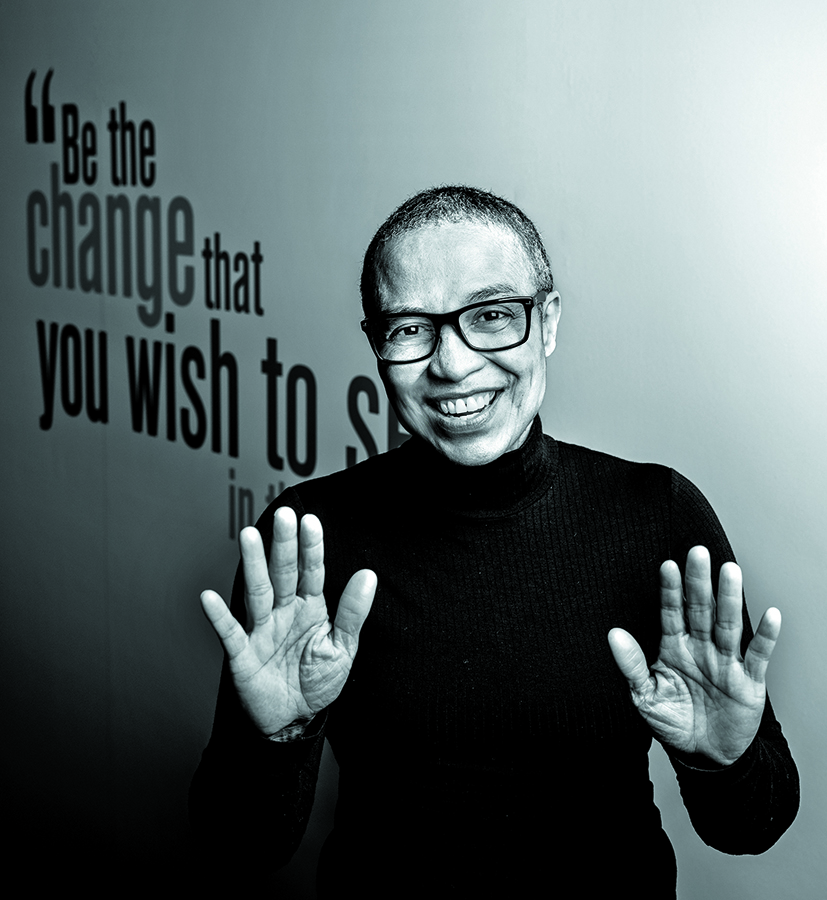Black Diaspora Studies scholar Shirley Anne Tate named Canada Research Chair
Donna McKinnon - 17 December 2020

Institutional racism is neither new nor any less urgent than at any other time in recent history, but the murder of George Floyd on May 25 made race-based injustices visible in irrefutable and tragic detail, igniting an unprecedented public response.
But while awareness may be high, real systemic change requires complex thought and action.
“We have been here before in terms of recognition of racism,” says Shirley Anne Tate, the Faculty of Arts’ new Tier 1 Canada Research Chair (CRC) in Feminism and Intersectionality.
“The problem, of course, with racism is that protest dynamizes piecemeal action and anti-racist change is not sustained,” she says. “For example, part of the piecemeal approach is institutional working groups focused on change and ideas being fed through the state institutional EDI (Equity, Diversity and Inclusion) machinery to make it appear that social justice transformation is happening, but we still have some of the same issues of racism raised in the 1980s and 1990s as we do now.”
The CRC is awarded to outstanding researchers who are acknowledged by their peers to be global leaders in their fields. Tate’s feminist approach to the critical analysis of race, racialization, systems of power, subjugation and dispossession encompasses institutions, individuals and social life across the Black diaspora. Her work complements and extends the research being conducted in the Department of Sociology, her home department, and Intersections of Gender, one of the University of Alberta’s Signature Areas.
Over the next seven years, Tate’s CRC research program will be focused on anti-BIPOC (Black, Indigenous and People of Colour) racism and decolonization in universities in five settler colonial states: Canada, Brazil, South Africa, Sweden and Finland — a continuation of the globally recognized research she has been conducting on intersectional institutional racism in universities over the past decade.
The opportunities afforded by the CRC, says Tate, will enable her to develop a trans-national collaborative project with colleagues on what curricular and institutional culture, processes and policy interventions might work in addressing intersectional institutional anti-BIPOC racism affecting faculty and students.
“There is incredible inertia because decolonial anti-racist change remains at the level of words of commitment — acknowledgement only, but the structures, processes and lived experiences of anti-BIPOC racism remain the same,” says Tate. “I hope that this project will help towards changing this by engaging with transnational learning on interventions that can make a difference. Of course, push comes to shove at the level of implementation and university buy-in but it will be impossible to keep saying 'we didn't know', or 'we don't know how to do this'.”
Tate admits that current events have been very painful to observe and participate in at a distance because of the COVID-19 lockdown. A Jamaican by birth who has lived most of her life in the UK, her own experiences of racism in the UK, including racial slurs and academic marginalization, shaped her academic life.
Writing about intersectional institutional racism and decolonization became a personal and academic necessity.
“These experiences could not be silenced and the more I wrote, the more I realized that these were shared experiences with BIPOC faculty, students and administrators in the UK and elsewhere.’
While the current groundswell of support for social justice transformation originated south of the border, the problem of racism is not unique to the USA alone, she says, citing local Black Lives Matter and BIPOC protests, anti-Indigenous racism and the lack of action on the Missing and Murdered Indigenous Women and Girls Final Report.
Tate says relocating to Canada last year marked the first time she experienced being a Black settler. “It’s really important for me to say that,” she says. “To think about what my responsibilities must be but also that I have a lot to learn and that I must remain open to learning, to working collaboratively and building community.”
As Tate works toward building a platform for anti-racist feminist social justice within the univeristy and beyond, she has become a fan of her adopted city and the community that has welcomed her.
“I must admit that I love Edmonton,” Tate says. “It is very, very beautiful, with wonderful fresh air, the most amazing big sky unlike any I have seen before and the river valley is incredible. I was unsure about surviving my first Canadian winter but I can say I really enjoyed the snow and the luminous nights. And my colleagues have been amazing, from giving me advice on winter coats to buy (thank you, Danielle!), taking me shopping (thank you, Dia!), to mentoring me (thank you, George!). I have never had so many invitations for tea/coffee or a meal anywhere I have worked before!”
Tate joins two newly announced 2020 Canada Research Chairs — Joshua St. Pierre (Critical Disability Studies) and David Brown (Energy, Economics and Policy), in addition to six current Canada Research Chairs in the Faculty of Arts.